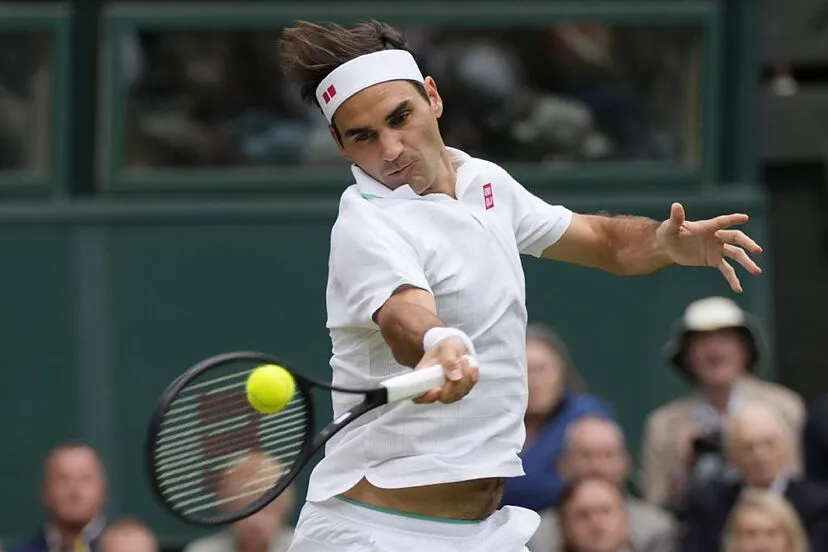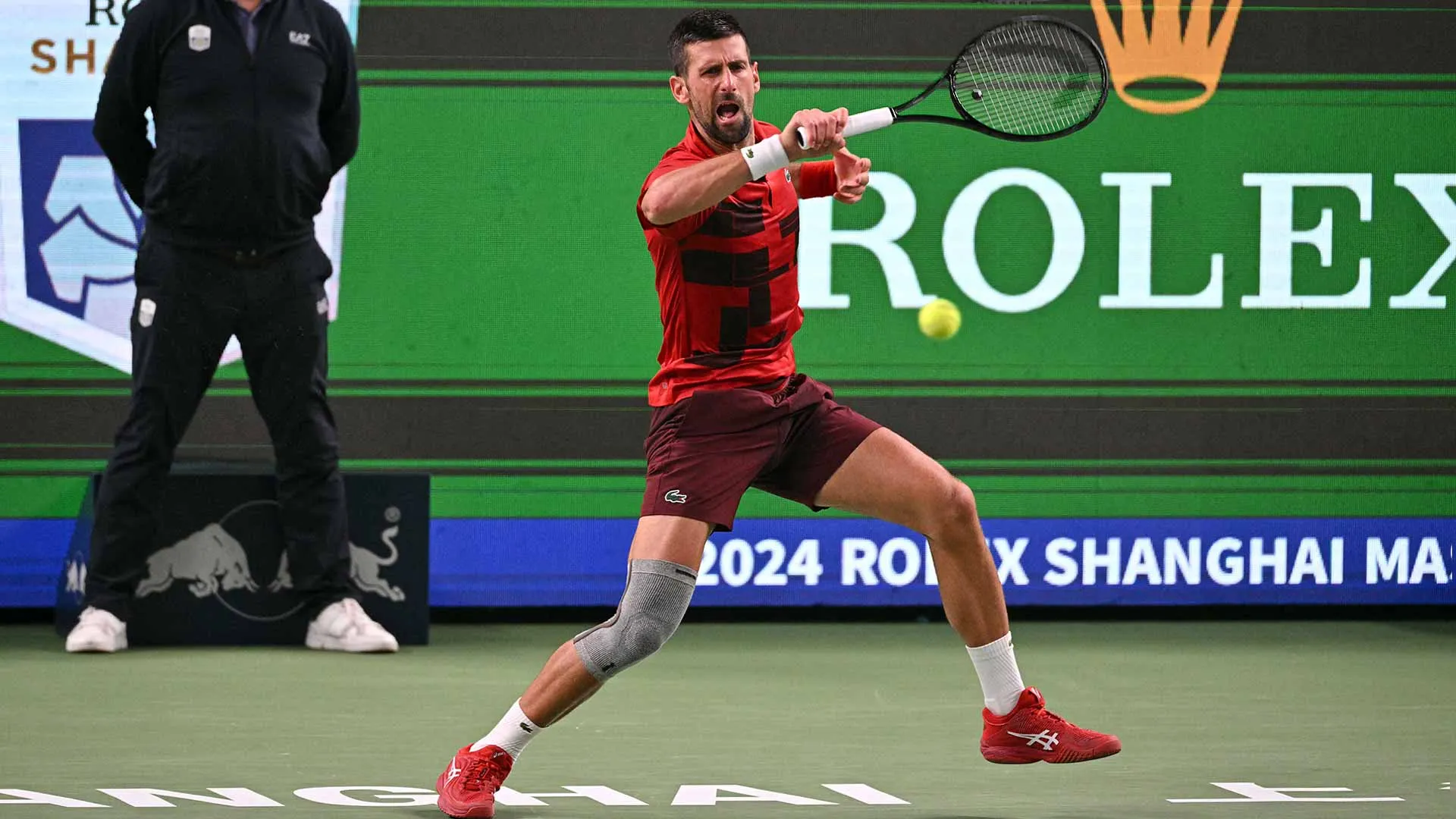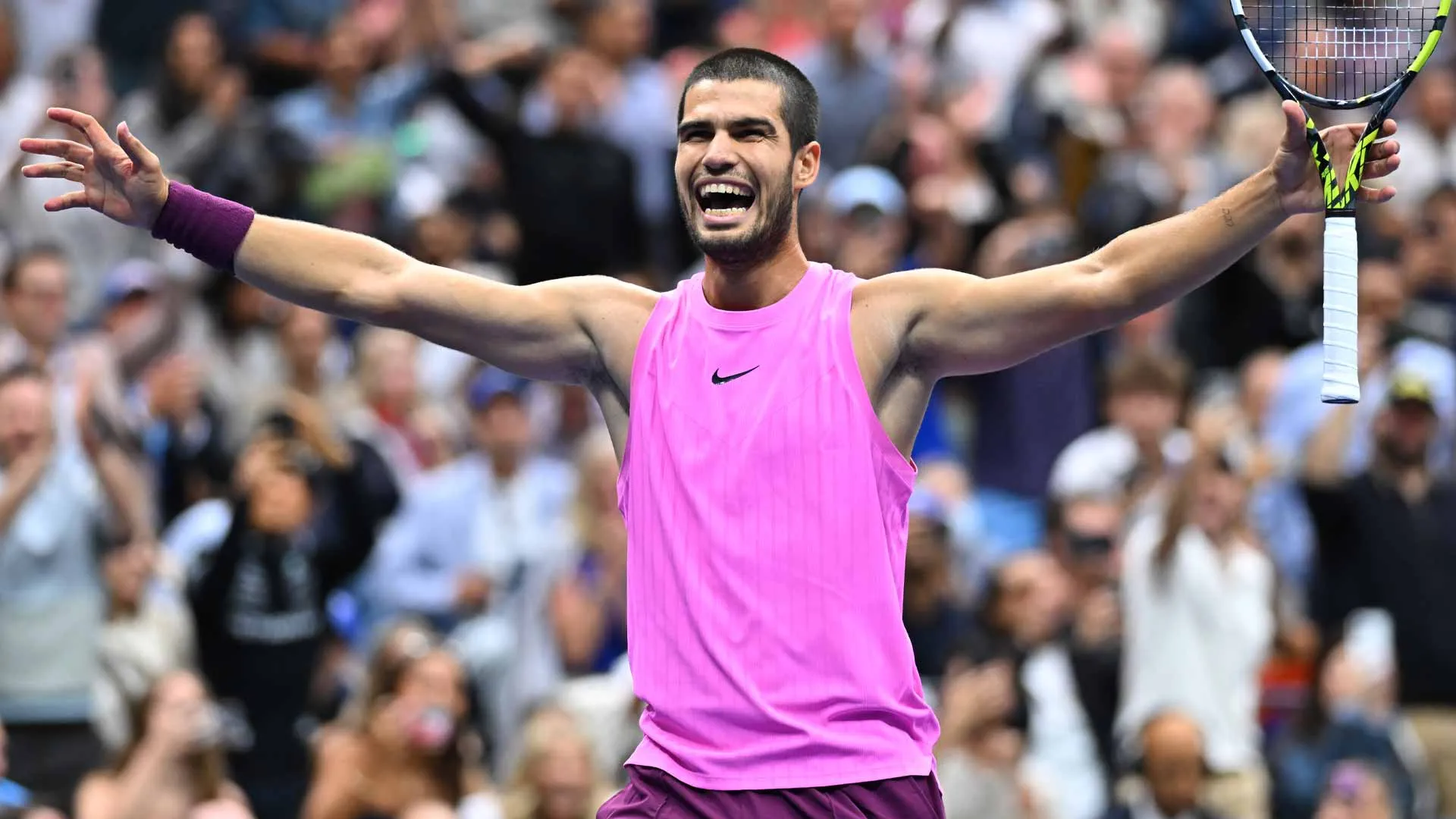
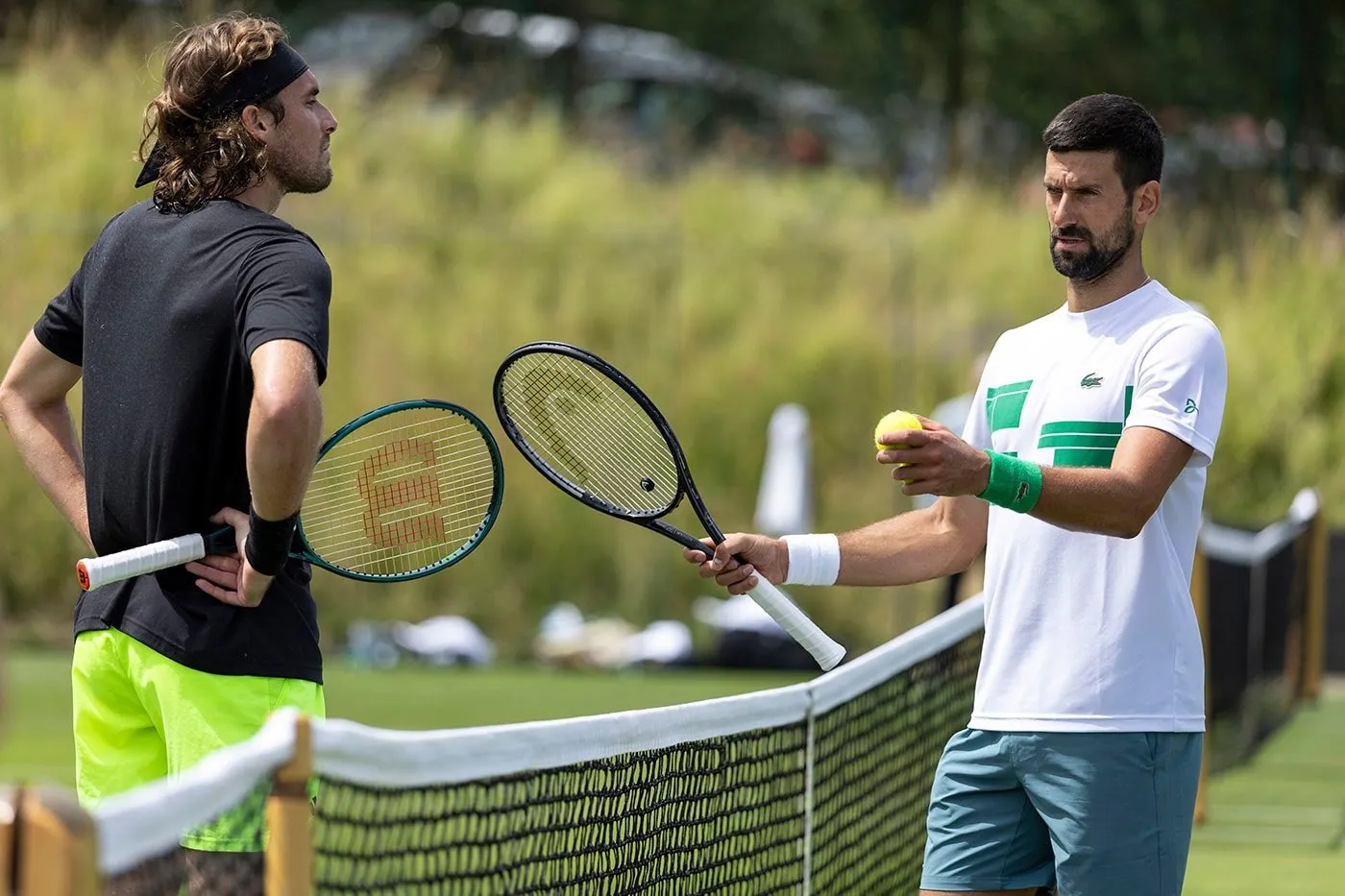
“Villain No More?” The Shocking Reason Why Djokovic Is Earning Fans’ Love – Revealed by His Old Rival
For over a decade, Novak Djokovic has been one of the most polarizing figures in the world of tennis. With 20+ Grand Slam titles, unmatched consistency, and an iron will, he has rewritten history. Yet, unlike Roger Federer’s grace or Rafael Nadal’s humility, Djokovic’s rise came with a chorus of skepticism, boos, and divided opinion.
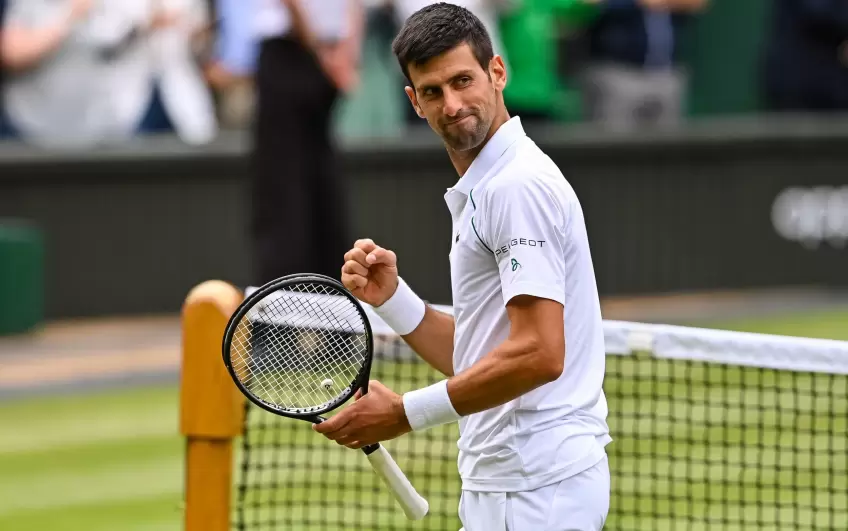
Many labeled him the sport’s “villain” — the defiant disruptor who stood in the way of a romanticized Federer-Nadal narrative. But now, in 2025, something astonishing is unfolding. The same crowds that once doubted him are standing in ovation. Children mimic his return stance. Fans chant his name. Media coverage seems gentler, almost reverent. What changed?
The answer, surprisingly, comes from someone who once shared the opposite side of the net — Gilles Simon, a cerebral and underrated player from France, who has faced Djokovic more than a dozen times and observed him with a precision few possess. In a recent candid interview, Simon revealed a side of Djokovic the world had missed, and in doing so, helped trigger a reevaluation of the man behind the racket.
The Origins of the Villain Label
To understand Djokovic’s current renaissance, one must revisit how he became the sport’s outlier in the first place.
When Djokovic burst onto the tennis scene in the mid-2000s, Federer and Nadal had already built a global narrative of respect, sportsmanship, and rivalry. Tennis had become a kind of duopoly, a moral drama where fans aligned with either the elegant Swiss maestro or the fierce Mallorcan warrior.
Then came Djokovic — brash, confident, loud. He didn’t just want to win; he wanted to be recognized as the best. He wasn’t afraid to challenge Federer in press conferences or mimic Nadal’s routines in light-hearted impersonations that fans found disrespectful. His body language on court, his relentless stretching of the rules, and even his occasional medical timeouts were scrutinized like flaws in character.
Even as he beat them both and built a résumé few could rival, the public’s affection lagged behind.
Simon’s Revelation: “Djokovic Never Lied to Us”
In a revealing segment from the French tennis documentary “Le Dernier Point”, Gilles Simon sat down to reflect on his era, his peers, and the misunderstood genius of Novak Djokovic. His words struck a nerve with fans:
“The truth is, Djokovic never pretended. He never lied to us. He was just always himself — and we didn’t like what that said about us.”
Simon went further. According to him, Djokovic’s sin was never arrogance — it was transparency. While Federer gave us the perfect gentleman and Nadal the humble fighter, Djokovic gave us a mirror: vulnerable, emotional, driven, ambitious, political, defiant. “He never tried to fake perfection,” Simon added. “And for that, we judged him.”
This insight sparked an online wave of reflection. Tennis fans began revisiting Djokovic’s interviews, watching his early pressers, and recognizing a pattern: his authenticity had been misinterpreted. He was never trying to be anyone else — he was just being Novak.
Rewriting the Narrative in Real Time
In 2021, when Djokovic was disqualified from the US Open for accidentally hitting a line judge, the reaction was swift and brutal. Many critics called it karma. Few players received less sympathy for such an accident. But as Simon pointed out, the overreaction revealed a collective bias.
And now, years later, as Djokovic continues to break records, the perception is finally shifting. Even fans who once booed him have started to appreciate his durability, his capacity for reinvention, and — perhaps most importantly — his humanity.
In a recent match at Roland Garros, a moment caught global attention. Djokovic, down two sets to love, turned to the crowd and smiled — not defiantly, but warmly, inviting their energy. The crowd responded with resounding applause. It felt like something had healed.
The Role of Vulnerability
What Simon emphasized most was Djokovic’s vulnerability. In today’s world, where perfection is often suspect, people have started embracing imperfection — rawness, honesty, mistakes. And Djokovic has shown them all.
He has cried on court. He has spoken openly about his doubts. He’s shared his struggles with diet, with media pressure, with national identity. Unlike the polished media machines around Federer and Nadal, Djokovic invited us into his world, mess and all.
Simon explained it this way: “We didn’t want a third superhero. We needed a real person. And Novak gave us that. But it took us 15 years to realize it.”
A National Hero, an International Enigma
Another reason for Djokovic’s delayed global adoration is his origin. Unlike Federer (from neutral Switzerland) or Nadal (from globally adored Spain), Djokovic is from Serbia, a country with a complicated political history.
For many fans, Djokovic was not just a rival to their favorite player — he was an outsider to their cultural expectations. Simon noted this with sharp clarity: “The tennis world wasn’t ready for a world number one from Belgrade. But Djokovic never tried to hide it. He embraced it, and that threatened people.”
Indeed, Djokovic has proudly championed his Serbian roots, often speaking in his native tongue at victory ceremonies and crediting his nation for shaping his resilience. Over time, fans began to respect this unapologetic pride, especially as Djokovic used his platform to support Serbian relief efforts, children’s education, and mental health advocacy.
The Pandemic and Public Missteps
It would be dishonest to ignore that Djokovic’s journey to acceptance also took detours. His controversial Adria Tour during the COVID-19 pandemic, his stance on vaccination, and his deportation from Australia in 2022 painted him as reckless or arrogant in media narratives.
Simon’s take on that period is unflinching: “Yes, he made mistakes. But unlike others, he never dodged responsibility. He stood by his choices, even when they cost him.”
And perhaps that’s the essence of Djokovic’s evolution — not in becoming someone else, but in doubling down on being himself, consequences and all.
The Final Years: A New Kind of Legacy
In 2024, after clinching his 25th Grand Slam, Djokovic announced that retirement was approaching. But rather than sadness, the announcement was met with gratitude and celebration. A full-circle moment for a man who spent much of his prime battling more than just opponents — he battled perception, prejudice, and the idea that greatness must always come in familiar forms.
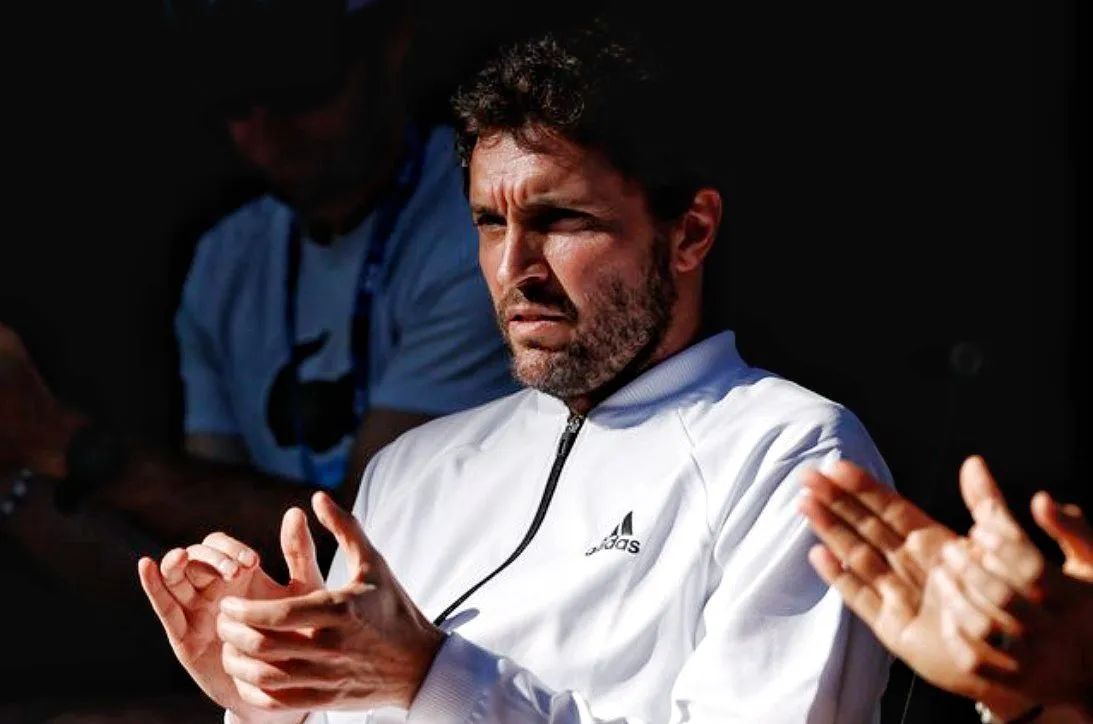
Now, as he enters what may be his final season, the tone has changed. Fans cheer not just for the victories, but for the journey. His embrace with Carlos Alcaraz in Madrid. His mentorship of young Serbian players. His emotional address in Rome, thanking his fans “for believing in me, even if it took time.”
Simon’s Final Word: “It Was Always There — We Just Missed It”
In the final minute of his interview, Gilles Simon offered one last reflection:
“We thought Novak had to become more like Roger or Rafa. But maybe we just needed to stop expecting that. Because if you look closely, the greatness, the heart, the depth — it was always there. We just missed it.”
And maybe that’s the true revelation. Novak Djokovic didn’t change to earn fans’ love — we changed. We learned to accept complexity, to embrace contradiction, and to recognize that greatness doesn’t always wear a halo. Sometimes, it wears a stubborn grin and shouts back at the crowd before kissing the court.
So yes, maybe he was the villain. But today, he’s something richer: a legend, fully seen.








